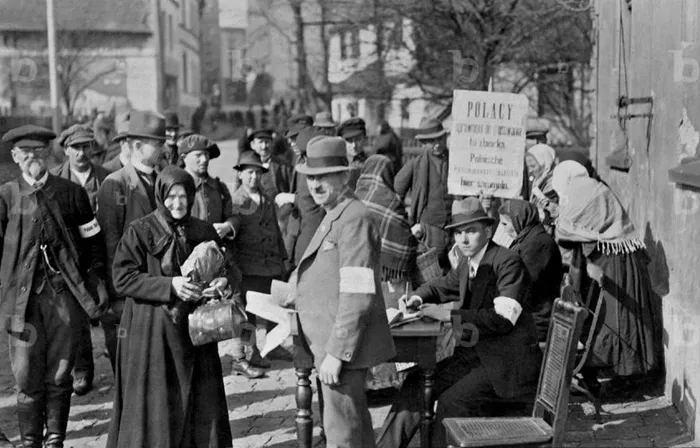December 20 marks several significant events in Australian history, particularly related to military actions during World War I and political developments. This article will explore these events in detail, providing a comprehensive overview of their context and impact on Australia.
What Happened on December 20 in Australian History?
1. Completion of ANZAC Evacuation from Gallipoli (1915)
One of the most pivotal events in Australian military history occurred on December 20, 1915, when the last Australian troops were evacuated from Gallipoli. This evacuation marked the end of the Gallipoli Campaign, which had begun in April 1915. The campaign aimed to secure a sea route to Russia and to knock the Ottoman Empire out of the war. However, it resulted in heavy casualties and is often viewed as a costly failure for the Allies.The evacuation was meticulously planned by Brigadier General Charles B. B. White and involved a series of strategic maneuvers to ensure that troops could leave without detection by the enemy. Under cover of darkness, the troops were withdrawn from their positions along the Gallipoli Peninsula. The operation was considered a success, as it was executed without any loss of life during the evacuation itself, although the campaign had claimed over 8,700 Australian lives by its conclusion.The Gallipoli Campaign has since become a foundational narrative in Australian national identity, commemorated annually on ANZAC Day (April 25). The successful evacuation is often seen as a testament to the resilience and bravery of Australian soldiers.
2. Second Conscription Plebiscite (1917)
On December 20, 1917, Australia held its second plebiscite regarding military conscription during World War I. Prime Minister William Morris Hughes advocated for conscription to bolster the Australian Imperial Force (AIF), which had suffered significant losses on the battlefield. The first plebiscite in October 1916 had been defeated, leading Hughes to push for a second vote.The plebiscite asked Australians whether they supported conscription for overseas service. However, this second attempt also met with defeat, reflecting deep divisions within Australian society regarding the war effort and conscription policies. Many Australians opposed conscription on moral grounds or due to concerns about the impact of further casualties on families and communities.The failure of this plebiscite underscored the growing anti-war sentiment in Australia and highlighted the challenges faced by Hughes’s government during this tumultuous period. It also foreshadowed a shift in public opinion that would influence post-war politics and society.
3. Hubert Wilkins’ Flight Over Antarctica (1928)
Another notable event that took place on December 20 occurred in 1928 when Australian explorer Hubert Wilkins made history by conducting the first flight over Antarctica in his Lockheed Vega named San Francisco. This flight was part of Wilkins’s broader efforts to explore and document uncharted territories in Antarctica.Wilkins’s expedition aimed to gather scientific data and map previously unexplored regions of the continent. His successful flight not only demonstrated advancements in aviation technology but also contributed significantly to our understanding of Antarctica’s geography and climate.Wilkins’s contributions to exploration were recognized internationally, and he is remembered as one of Australia’s most distinguished explorers. His pioneering spirit inspired future generations of scientists and adventurers.
4. Death of Earle Page (1961)
On December 20, 1961, Earle Page, who served as Australia’s eleventh Prime Minister for a brief period during World War II, passed away. Page was a prominent figure in Australian politics and played a significant role in shaping national policy during his tenure.Page was initially elected to Parliament in 1919 and became known for his advocacy for rural interests and economic development. He served as Minister for Health and later as Deputy Prime Minister under John Curtin during the war years.His death marked the end of an era for many Australians who had witnessed his contributions to both domestic policy and international relations. Page’s legacy continues to be felt today through various policies that support rural communities.
5. Paul Keating Becomes Prime Minister (1991)
December 20, 1991, saw Paul Keating become Australia’s twenty-fourth Prime Minister following a leadership challenge within the Labor Party. Keating had previously served as Treasurer under Bob Hawke and was known for his economic reforms that modernized Australia’s economy.His ascension to leadership marked a significant shift in Australian politics, as Keating focused on issues such as reconciliation with Indigenous Australians, economic globalization, and social justice. His government implemented policies aimed at fostering economic growth while addressing social inequalities.Keating’s leadership style was characterized by his passionate speeches and commitment to progressive reforms. His tenure is often remembered for its emphasis on national identity and multiculturalism within Australia.
Conclusion
December 20 holds a significant place in Australian history with events that have shaped the nation’s military legacy, political landscape, and identity. From the successful evacuation at Gallipoli to pivotal political changes like Keating’s rise to power, these moments reflect Australia’s evolving narrative over time.Understanding these historical events provides insight into how they have influenced contemporary Australia and its values today. Each event serves as a reminder of the sacrifices made by Australians throughout history and highlights the ongoing journey towards national unity and progress.
Related Topics:

